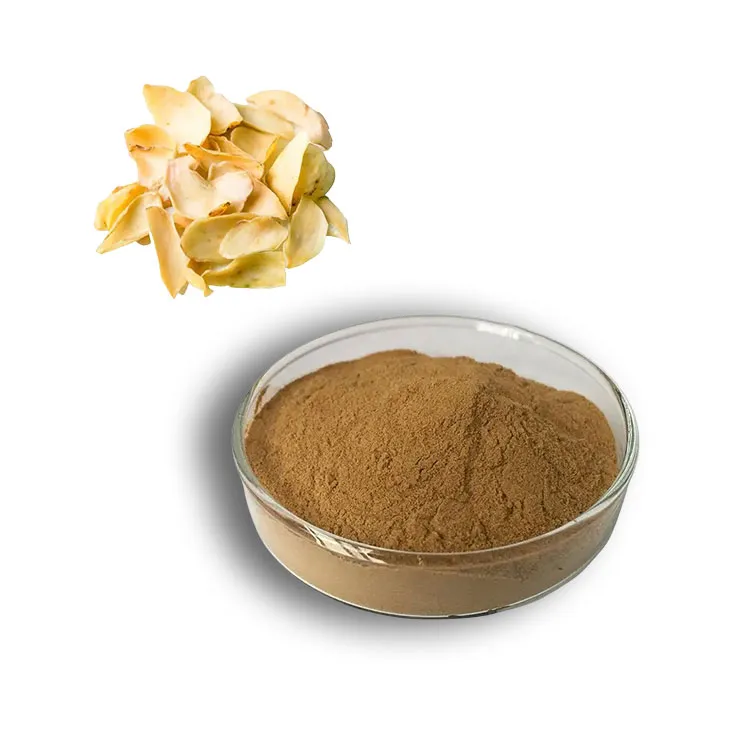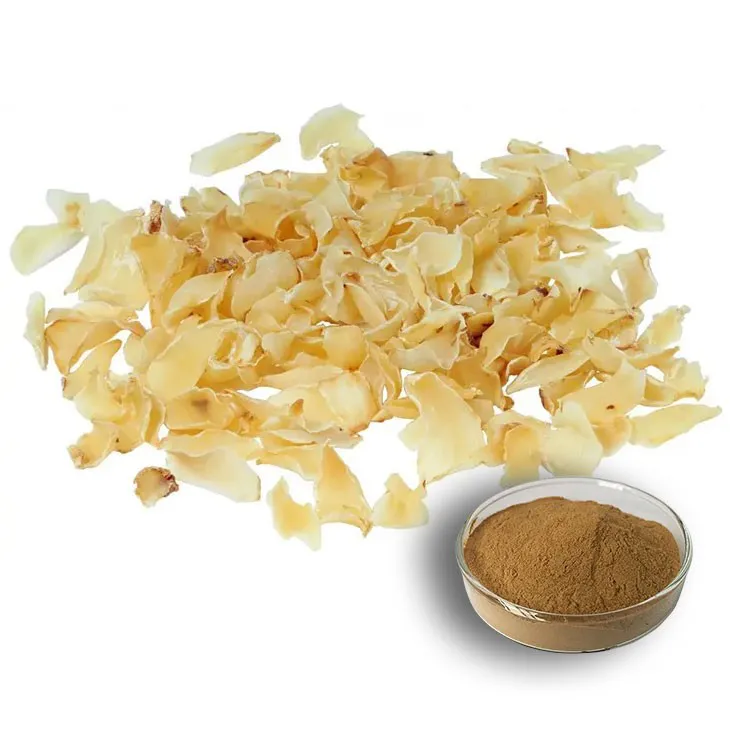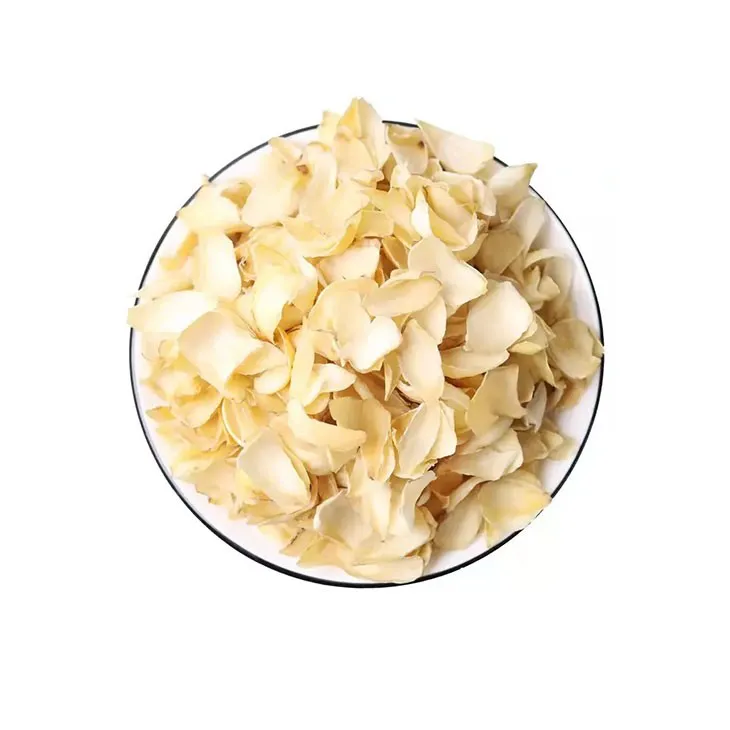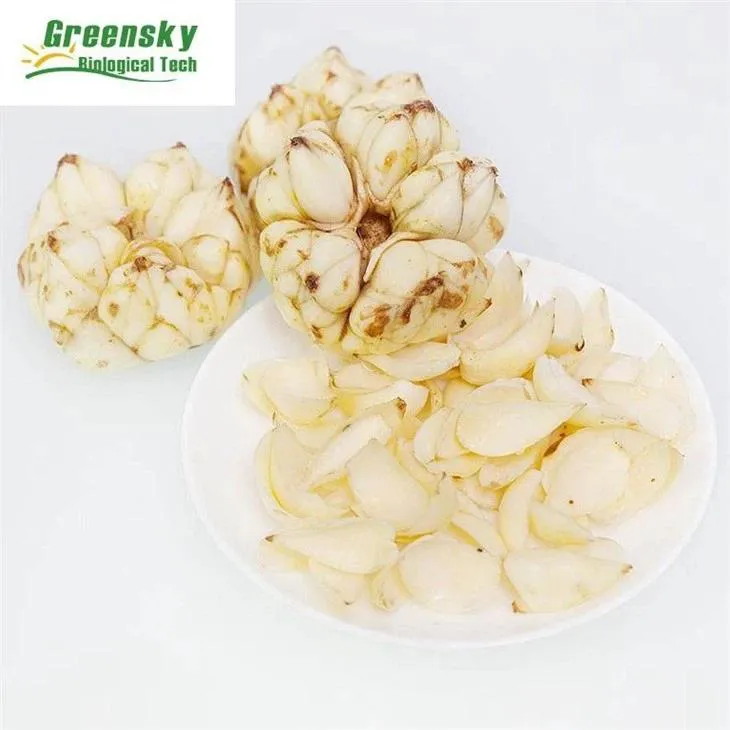- 0086-571-85302990
- sales@greenskybio.com
Chinese Lily Extract Powder Factory.
2024-11-27

Introduction
China, a vast and diverse country, is renowned for its rich botanical resources. Among these, lilies hold a special place. There are numerous Lily extract powder factories in China that are engaged in a remarkable process of transforming the elegance and therapeutic properties of lilies into a valuable commercial product. These factories are at the forefront of an industry that combines traditional knowledge with modern technology.

The Manufacturing Facilities
Chinese Lily extract powder factories are typically equipped with state - of - the - art facilities for extraction, purification, and drying.
The Extraction Process
The extraction process is a carefully choreographed operation. It is designed to capture the maximum amount of beneficial compounds from the lily. Advanced extraction techniques are employed to ensure that the essence of the lily is retained. This often involves the use of solvents that are carefully selected to be both effective in extracting the desired compounds and safe for subsequent use in various products. The extraction process is constantly being refined and optimized to improve the yield and quality of the Lily extract powder.
Purification and Drying
Once the extraction is complete, the purification process begins. This is crucial to remove any impurities that may have been co - extracted. Purification methods can include filtration, centrifugation, and chromatography techniques. After purification, the product is dried to obtain the final lily extract powder. Drying is carried out under controlled conditions to preserve the integrity of the active compounds. Different drying methods such as spray drying or freeze - drying may be used depending on the requirements of the end - product.

The Supply Chain: Sourcing Lilies from Local Farmers
The factories source their lilies from reliable local farmers. This relationship is of utmost importance as it helps in maintaining a stable supply chain. By collaborating with local farmers, the factories can ensure a consistent supply of high - quality lilies.
Benefits for Farmers
- The partnership with the factories provides farmers with a reliable market for their lily crops. This gives them the incentive to cultivate lilies on a larger scale and with more care.
- Farmers also receive technical support from the factories in some cases. This can include advice on better cultivation practices, pest control, and harvesting techniques.
Quality Control at the Source
The factories often work closely with farmers to implement quality control measures at the source. This includes ensuring that the lilies are grown in suitable environments, free from contaminants, and harvested at the optimal time. By controlling the quality of the raw material, the factories can produce lily extract powder of superior quality.

Marketing Advantage of Chinese Lily Extract Powder
Lily extract powder from Chinese factories has a significant competitive edge in the global market.
Cost - Effectiveness
It is competitively priced while maintaining high quality. This is due to several factors. Firstly, the large - scale production in China allows for economies of scale. The availability of raw materials from local sources also reduces transportation and procurement costs. These cost advantages are passed on to the customers, making Chinese lily extract powder an attractive option for international buyers.
Quality Assurance
- Chinese factories adhere to strict quality control standards. They are often compliant with international quality certifications, which gives international buyers confidence in the product.
- The use of advanced manufacturing facilities and well - established extraction processes further ensures the consistency and quality of the lily extract powder.

Applications in Different Industries
The versatility of lily extract powder makes it a sought - after ingredient in various industries.
Pharmaceutical and Herbal Medicine Industries
In the pharmaceutical and herbal medicine industries, lily extract powder may be used in the formulation of remedies for various ailments.
- It has been studied for its potential anti - inflammatory properties. In traditional Chinese medicine, lilies have been used to soothe respiratory problems, and modern research is exploring its role in treating conditions such as coughs and bronchitis.
- Some studies suggest that lily extract may have antioxidant effects, which could be beneficial in preventing oxidative stress - related diseases.
Beauty and Personal Care Industry
In the beauty and personal care industry, lily extract powder can be a key ingredient in products like creams, lotions, and serums.
- It is known for its moisturizing properties. Lily extract can help to hydrate the skin, leaving it soft and supple.
- Some beauty products claim that lily extract can improve skin complexion, reducing blemishes and giving the skin a healthy glow.
The Role in Promoting Sustainable Development
These factories play an important role in promoting sustainable development.
Encouraging Sustainable Lily Cultivation
- They encourage sustainable lily cultivation among farmers. This includes promoting the use of organic fertilizers and natural pest control methods to reduce the environmental impact of lily farming.
- By providing a stable market for sustainably grown lilies, the factories give farmers an economic incentive to adopt sustainable practices.
Environmental Protection and Biodiversity
- Sustainable lily cultivation helps in protecting the environment. It reduces the use of harmful chemicals that can contaminate soil and water sources.
- It also contributes to biodiversity conservation. Lilies are an important part of the ecosystem, and sustainable cultivation ensures that their natural habitats are not destroyed.
Conclusion
Chinese lily extract powder factories are not just manufacturing units. They are key players in a complex ecosystem that involves local farmers, international markets, and the environment. Through their advanced manufacturing processes, quality control, and commitment to sustainability, they are able to produce a high - quality product that has a wide range of applications in different industries. As the demand for natural and sustainable products continues to grow, these factories are well - positioned to meet the challenges and opportunities of the global market.
FAQ:
1. What are the main extraction methods used in Chinese lily extract powder factories?
Chinese lily extract powder factories typically use methods such as solvent extraction. This involves using solvents like ethanol or water to extract the beneficial compounds from the lily. Another method could be supercritical fluid extraction which offers high selectivity and purity. These methods are carefully designed to ensure maximum extraction of the desired components while minimizing the extraction of unwanted substances.
2. How do Chinese lily extract powder factories ensure the quality of their products?
They ensure product quality in multiple ways. Firstly, by sourcing lilies from reliable local farmers, they can control the quality of the raw material. Then, during the extraction, purification, and drying processes, strict quality control measures are implemented. This includes monitoring parameters such as temperature, pressure, and extraction time. Additionally, final products are often tested in laboratories for purity, potency, and absence of contaminants.
3. What are the main applications of lily extract powder in the international market?
In the international market, lily extract powder has diverse applications. In the pharmaceutical industry, it can be used in drugs for treating respiratory problems or as an anti - inflammatory agent. In the food and beverage industry, it might be added to functional foods for its potential health - promoting properties. In the cosmetics industry, it is a popular ingredient in skin - care products like anti - aging creams due to its antioxidant properties.
4. How do Chinese lily extract powder factories contribute to sustainable development?
These factories contribute to sustainable development in several ways. They promote sustainable lily cultivation among farmers. This may involve providing guidance on environmentally - friendly farming practices such as reducing pesticide use and conserving water. By ensuring a stable supply chain from local farmers, they also support the local economy. Additionally, their production processes may be designed to minimize waste and energy consumption.
5. What makes lily extract powder from Chinese factories competitively priced?
There are several factors. Firstly, the availability of local lily sources reduces transportation costs. Also, the scale of production in many Chinese factories allows for cost - effective manufacturing. They can take advantage of economies of scale in purchasing raw materials, extraction equipment, and in labor costs. Additionally, efficient production processes that minimize waste also contribute to keeping the prices competitive.
Related literature
- The Extraction and Application of Botanical Extracts: A Review"
- "Lily - Based Products in the Global Market: Quality and Sustainability"
- "Botanical Extract Powder Production: A Focus on Chinese Factories"
- ▶ Hesperidin
- ▶ citrus bioflavonoids
- ▶ plant extract
- ▶ lycopene
- ▶ Diosmin
- ▶ Grape seed extract
- ▶ Sea buckthorn Juice Powder
- ▶ Beetroot powder
- ▶ Hops Extract
- ▶ Artichoke Extract
- ▶ Reishi mushroom extract
- ▶ Astaxanthin
- ▶ Green Tea Extract
- ▶ Curcumin Extract
- ▶ Horse Chestnut Extract
- ▶ Other Problems
- ▶ Boswellia Serrata Extract
- ▶ Resveratrol Extract
- ▶ Marigold Extract
- ▶ Grape Leaf Extract
- ▶ blog3
- ▶ blog4
-
Ginger extract of the best quality.
2024-11-27
-
Wholesale Passion Fruit Extract Suppliers.
2024-11-27
-
Organic Genistein, Australia.
2024-11-27
-
Standard - process Nutmeg extract.
2024-11-27
-
Curcuma Longa Extract
2024-11-27
-
Gynostemma pentaphyllum extract
2024-11-27
-
Sea buckthorn oil
2024-11-27
-
Nutmeg Extract
2024-11-27
-
Agaricus Blazei Extract
2024-11-27
-
Troxerutin
2024-11-27
-
White mustard seed extract
2024-11-27
-
Maitake Mushroom Extract
2024-11-27
-
Lily extract
2024-11-27
-
Red Wine Extract
2024-11-27




















